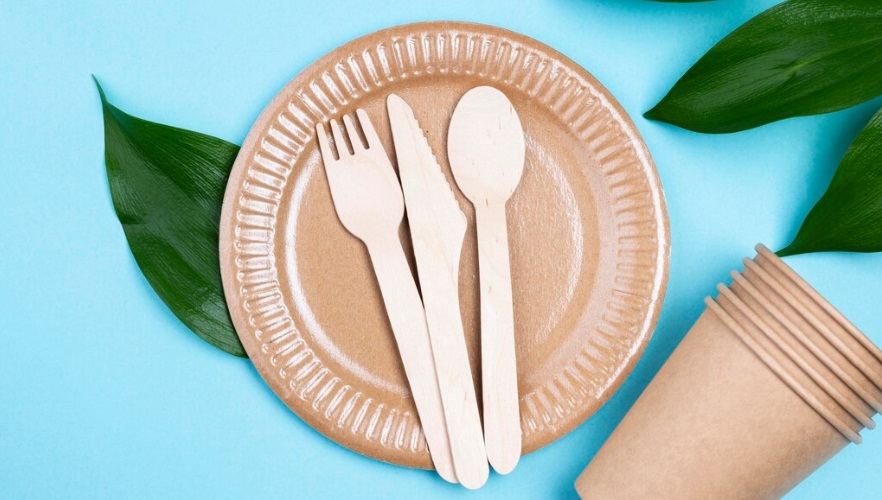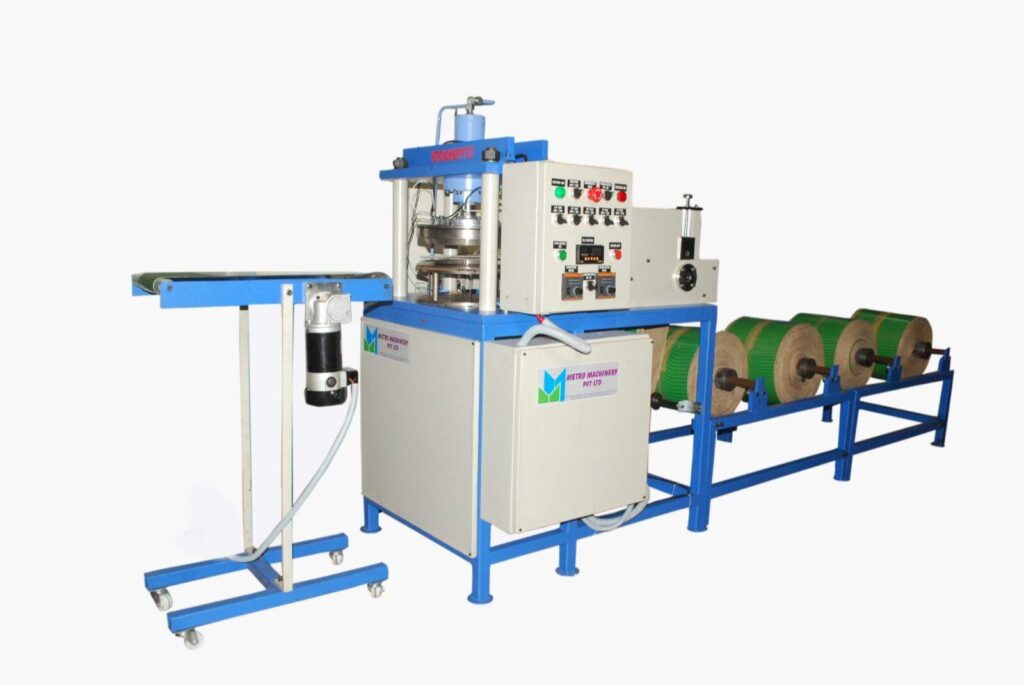Starting a Disposable Plates Business is a good idea as it has low initial costs and is in high demand across various regions. To get started, it is important to conduct market research to understand the local demand and identify potential customers, such as potential customers from restaurants, caterers and home consumers.
Once you identify your market, register your Disposable Plates Business and obtain the necessary licenses. It is best to select reliable suppliers for equipment like paper pulp who ensure excellent product quality. Depending on your budget, you can set up a small paper production unit or outsource the manufacturing.

Focus on developing a range of high-quality eco-friendly plates in various sizes and designs to meet the needs of different customers. Effective marketing strategies including online presence and local networking will help establish your brand. Establish strong distribution channels and prioritize excellent customer service to build trust and loyalty.
As your business starts growing, scale up production and handle finance management for stable profitability. With strategic planning and dedication, a disposable plates business can be successful and meet the growing demand for convenient, eco-friendly tableware solutions.
Table of Contents
STEP 1. Invest in a dona making machine for efficient production
Starting a used Disposable Plates Business can be really profitable, as there is an increasing demand for used tableware in various events such as parties, weddings, and various ceremonies. The first important step to starting this venture is to get a dona making machine.
These machines are important as they enable you to manufacture used plates effectively and on a large scale and in good quality.
You can buy the dona making machine from the local market or through online platforms such as www.indiamart.com. These machines help streamline the production process, allowing you to produce plates in greater quantities and faster.

Investing in a reliable machine will enable you to meet the demand for used plates, serving everyone from individual customers to large organizers.
By getting a dona making machine, you lay the foundation for your business operations. It not only streamlines production, but also helps you benefit from the growing market for used tableware, offering convenience and an eco-friendly option to your customers.
STEP 2. Strategic Sales and Marketing Strategies for Disposable plates
It is very important to understand your market, pricing policy and distribution when starting a business, especially in selling products such as laboratory plates and glasses.
First of all, it is important to identify your target customer base. Targeting primarily price-sensitive customers for laboratory plates and glasses can be effective. For example, offering them below one rupee per unit, instead of a few rupees per unit as others in the market charge, can be beneficial.
Choosing the right sales location is also very important. Partnering with a local market or local vendors can increase the visibility and reach of the product, while reducing logistics costs. Setting up stalls in small markets or tie-ups with local shops in busy markets can increase the visibility and reach of the product.
Volume sales are important, especially when selling such high volumes as 2000 plates a day. Due to the low pricing compared to the profit per unit in the market, the total revenue can be significant, providing a strong foundation for business growth.

It is also important to focus on promoting marketing strategies. Promoting your products primarily through word-of-mouth promotion, social media, or local advertising can help you reach more potential customers and increase brand recognition.
Continuously evaluating customer feedback is extremely important. Refining your strategies based on the insights from customer interactions can help you tailor your product offerings and sales strategies.
Sensitively combining all these aspects—targeting the right market segments, setting competitive prices, choosing effective distribution channels, and active marketing—can lay a strong foundation for long-term enterprise growth.
STEP 3. Investment in disposable plates business: Start with small amount, get good income
Financial planning is very important in starting a lentil business, especially for new entrepreneurs who are working for the first time in this field. Initial costs usually range between Rs 20,000 to Rs 25,000, which includes the expenses required to start the business.
A major part of this budget goes into purchasing the initial stock of lentils. Buying in bulk helps to get competitive prices and ensures adequate storage to meet customer demand. Apart from lentils, budgeting also includes key packaging materials such as bags or containers, which are important in preserving freshness and presentation.
For entrepreneurs who choose to have a physical presence, they can also spend money on renting a small space or setting up a temporary market stall.

Additionally, candidates should also take into account additional expenses for obtaining the necessary licenses and permits. Regulatory compliance is extremely important to operate legally and helps build trust with customers.
Marketing expenses also play a vital role in attracting local customers. Investing in promotional activities like flyers, signage or online advertising helps to build awareness and increase initial customer footfall. Additionally, transportation expenses may also arise when sourcing lentils from different suppliers to run the business.
Significantly, careful planning and wise distribution of funds are crucial for a successful launch and sustainable growth of a lentil business.
By understanding business expenses and estimating expenses early and regularly, entrepreneurs can navigate initial challenges and lay a strong foundation for profitability and expansion.
To watch the video, click the link below…
Click the link to read the recent blog Business Idea 24…
Strategies to start and make a successful home made Dal (Pulses) business


2 thoughts on “Starting a Disposable Plates Business on a Budget: Path to Success(25)”